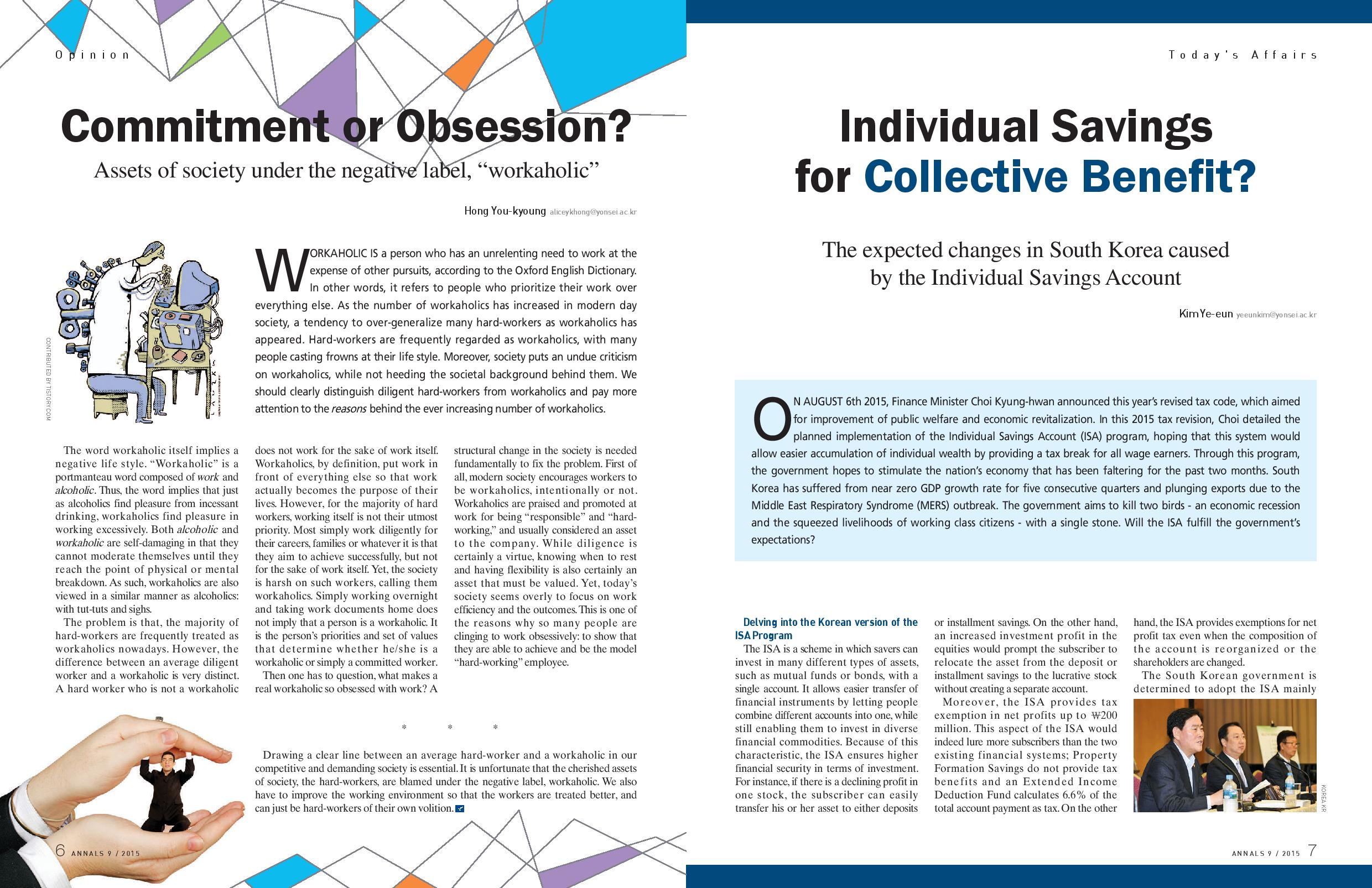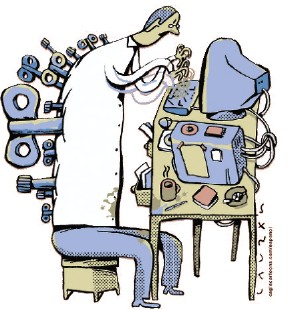Assets of society under the negative label, “workaholic”


WORKAHOLIC IS a person who has an unrelenting need to work at the expense of other pursuits, according to the Oxford English Dictionary. In other words, it refers to people who prioritize their work over everything else. As the number of workaholics has increased in modern day society, a tendency to over-generalize many hard-workers as workaholics has appeared. Hard-workers are frequently regarded as workaholics, with many people casting frowns at their life style. Moreover, society puts an undue criticism on workaholics, while not heeding the societal background behind them. We should clearly distinguish diligent hard-workers from workaholics and pay more attention to the reasons behind the ever increasing number of workaholics.
The word workaholic itself implies a negative life style. “Workaholic” is a portmanteau word composed of work and alcoholic. Thus, the word implies that just as alcoholics find pleasure from incessant drinking, workaholics find pleasure in working excessively. Both alcoholic and workaholic are self-damaging in that they cannot moderate themselves until they reach the point of physical or mental breakdown. As such, workaholics are also viewed in a similar manner as alcoholics: with tut-tuts and sighs.
The problem is that, the majority of hard-workers are frequently treated as workaholics nowadays. However, the difference between an average diligent worker and a workaholic is very distinct. A hard worker who is not a workaholic does not work for the sake of work itself. Workaholics, by definition, put work in front of everything else so that work actually becomes the purpose of their lives. However, for the majority of hard workers, working itself is not their utmost priority. Most simply work diligently for their careers, families or whatever it is that they aim to achieve successfully, but not for the sake of work itself. Yet, the society is harsh on such workers, calling them workaholics. Simply working overnight and taking work documents home does not imply that a person is a workaholic. It is the person’s priorities and set of values that determine whether he/she is a workaholic or simply a committed worker.
Then one has to question, what makes a real workaholic so obsessed with work? A structural change in the society is needed fundamentally to fix the problem. First of all, modern society encourages workers to be workaholics, intentionally or not. Workaholics are praised and promoted at work for being “responsible” and “hard-working,” and usually considered an asset to the company. While diligence is certainly a virtue, knowing when to rest and having flexibility is also certainly an asset that must be valued. Yet, today’s society seems overly to focus on work efficiency and the outcomes. This is one of the reasons why so many people are clinging to work obsessively: to show that they are able to achieve and be the model “hard-working” employee.
* * *
Drawing a clear line between an average hard-worker and a workaholic in our competitive and demanding society is essential. It is unfortunate that the cherished assets of society, the hard-workers, are blamed under the negative label, workaholic. We also have to improve the working environment so that the workers are treated better, and can just be hard-workers of their own volition.
Hong You-kyoung
aliceykhong@yonsei.ac.kr

